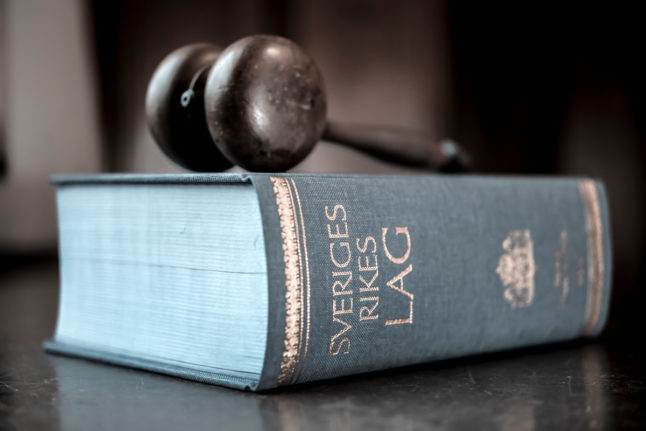Sixty-five-year-old former Syrian brigadier general Mohammed Hamo, who lives in Sweden, stands accused of “aiding and abetting” war crimes during Syria’s civil war, which can carry a sentence of life in jail.
The war in Syria between Bashar al-Assad’s regime and armed opposition groups, including the Islamic State, erupted after the government repressed peaceful pro-democracy protests in 2011.
It has killed more than half a million people, displaced millions, and ravaged the country’s economy and infrastructure.
According to the charge sheet, Hamo contributed – through “advice and action” – to the Syrian army’s warfare, “which systematically involved indiscriminate attacks on several towns or places in the area in and around the towns of Hama and Homs”.
The charges concern the period of January 1st to July 20th, 2012 and the trial is expected to last until late May.
Prosecutors say that the Syrian army’s “warfare has included widespread air and ground attacks by unknown perpetrators within the Syrian army”.
The prosecution argues that strikes were carried out without distinction – as required by international law – between civilian and military targets.
In his role as a brigadier general and head of an armament division, he allegedly helped with the coordination and supply of arms to units, enabling the carrying out of orders on an “operational level”.
Hamo’s lawyer, Mari Kilman, told AFP that her client denied committing a crime but said she did not wish to comment further ahead of the trial.
Several plaintiffs are due to testify at the trial, including Syrians from the cities in question and a British photographer who was injured during one of the strikes.
‘Complete impunity’
“The attacks in and around Homs and Hama in 2012 resulted in widespread civilian harm and an immense destruction of civilian properties,” Aida Samani, senior legal advisor at rights group Civil Rights Defenders, told AFP.
“The same conduct has been repeated systematically by the Syrian army in other cities across Syria with complete impunity,” she continued.
This trial will be the first in Europe “to address these types of indiscriminate attacks by the Syrian army”, according to Samani, who added that it “will be the first opportunity for victims of the attacks to have their voices heard in an independent court”.
Hamo is the highest-ranking military official to actually go on trial in Europe, but other European countries have also tried to bring charges against even more senior members.
In March, Swiss prosecutors charged Rifaat al-Assad, an uncle of president Bashar al-Assad, with war crimes and crimes against humanity.
However, it remains unlikely Rifaat al-Assad – who recently returned to Syria after 37 years in exile – will show up in person for the trial, for which a date has yet to be set.
Swiss law allows for trials in absentia under certain conditions.
Last November, France issued an international arrest warrant for Bashar al-Assad himself, who stands accused of complicity in crimes against humanity and war crimes over chemical attacks in 2013.
Three other international warrants were also issued for the arrests of Bashar al-Assad’s brother Maher, the de-facto chief of the Fourth Division – an elite military unit of the Syrian army – and two generals.
In January of 2022, a German court sentenced former Syrian colonel Anwar Raslan to life in jail for crimes against humanity in the first global trial over state-sponsored torture in Syria, which was hailed by victims as a victory for justice.



 Please whitelist us to continue reading.
Please whitelist us to continue reading.
Member comments